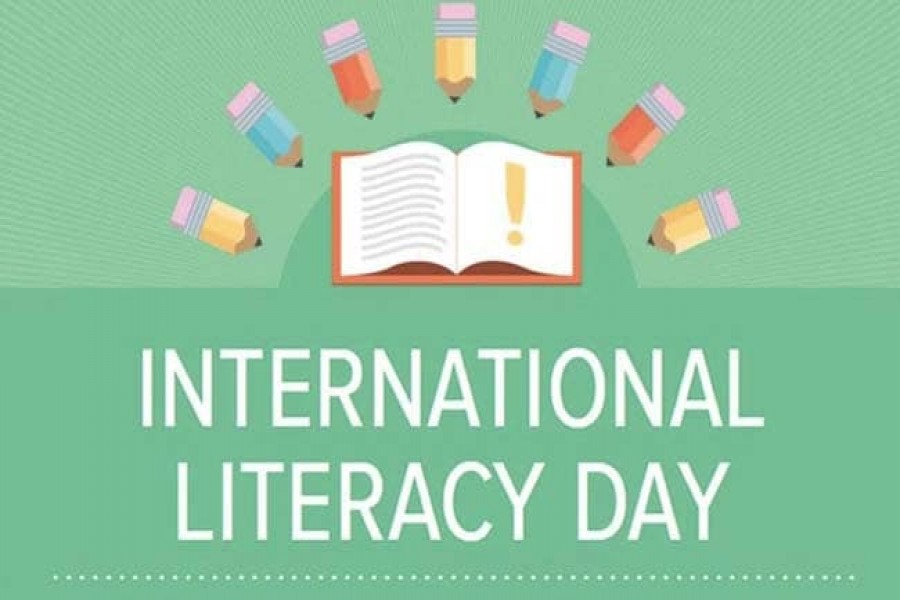That observance of the International Literacy Day on Tuesday, September 8 would be on a low key was a foregone conclusion. Quite understandably, this is no time for policymakers to prioritise adult literacy when schooling of regular students has to be discontinued on account of the pandemic. Of greater concern will be the challenge of putting a brake on the swelling rank of dropouts in countries like Bangladesh where yawning socio-economic disparities is expected to grow even worse. Bereft of basic literacy skills, 773 million adult and young people the world over stand little or no chance of adapting themselves to the pandemic-induced changing situation because they are the most ill equipped to apply themselves to adversities that take people off guard. Deprived of basic literacy skills they are also without the minimum life skills.
It is indeed embarrassing that at a time the discourses on human development centre around digitisation of all areas of a nation, the policymakers and planners still have to be worried about the literacy of a significant number of people. Before the Awami League government took over in 2008, the literacy rate among people aged 15 and above was 48.8 per cent. The rate has gone up to 74.7 per cent following the completion of the first phase of the Basic Literacy Project under which 2.36 million adults in 136 upazilas received lessons till 2019. The remaining 2.14 millions in 114 upazilas were supposed to benefit from the programme by June 2020. This programme met with a setback with coronavirus continuing its rampage. However the target originally set for achieving 100 per cent literacy was by 2014 and it has been extended well beyond the time limit. The June 20 deadline has become a casualty of the pandemic but this would not have been the case if things went according to the original schedule.
There are more questions than can be answered to when universal basic literacy is at issue. Basic literacy is acquirement of that level of psychosocial abilities which, according to the United Nations International Children's Emergency Fund (Unicef), help develop adaptive and positive behaviours in individuals to deal with the demands and challenges of everyday life. It is doubtful how far this objective is achieved by basic literacy. When the country's traditional education at the graduation or tertiary level fails to be equal to the emerging challenges, the objectives basic literacy aims at achieving are sure to remain a distant dream.
The world is fast becoming an unfamiliar turf for fairly educated people, only more so with the prolongation of the pandemic. Those who among them can quickly learn the use of new tools and gadgets stand a chance of surviving the crisis. People yet to be literate will only prove more disadvantaged during this critical phase of human history. The question is, will they survive or perish or better say, should the rest of the world stand a silent spectator while the disadvantaged illiterate groups embrace mass annihilation? Intriguingly, the world's top superrich are acquiring fabulous amount of wealth during the pandemic. Along with governments everywhere, if the richest people come forward, the most vulnerable groups can be saved. In the post-pandemic period crash programmes should be launched to make them literate in the light of Unicef objectives.


